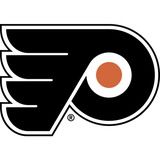
North Stars helped usher in NHL expansion in 1967

The NHL's "great expansion" of 1967 delivered hockey to California, led to the "Broad Street Bullies" and legitimized the league as a major force in North American professional sports.
Fifty years ago this week, the owners of the original six teams unanimously approved doubling in size by awarding franchises to Los Angeles, San Francisco/Oakland, Philadelphia, Pittsburgh, St. Louis and Minneapolis/St. Paul. No other pro sports league had ever doubled the number of its teams and the move was considered a gamble.
It proved to be one of the most important decisions in hockey history, and helped convince many that the NHL was for real.
"It had a major impact on the league because thereafter there was almost a lineup for other cities to want to join the league," said Brian O'Neill, the league's former director of administration who oversaw the 1967 expansion draft and scheduling. "That was a key to the expansion, to spread the game from California to New York. ... It convinced a lot of people that hockey was a major sport now and it was coast-to-coast and that selling franchises would not be difficult."
From 1943 to 1967, the NHL was a stable, six-team league made up of the New York Rangers, Boston Bruins, Chicago Blackhawks, Detroit Red Wings, Montreal Canadiens and Toronto Maple Leafs. The move to expand came in the league's 50th season amid plenty of internal debate.
Owners considered adding two teams at a time, but at their Feb. 7-9 meeting in New York they unanimously approved what President Clarence Campbell later referred to as the "great expansion." Hockey had some catching up to do: Major League Baseball had 20 teams, the National Basketball Association had nine and the National Football League had 14, with more on the way.
The MLB, the NBA and NFL all had a presence in California, too, something the NHL needed.
"The big issue, of course, is television," O'Neill said Tuesday. "They wanted to get national. That's why it was important to have L.A. and at that time Oakland, and then all the others followed in."
Owners each paid the $2 million expansion fee, and the Los Angeles Kings and California Seals joined the fold along with the Philadelphia Flyers, Pittsburgh Penguins, St. Louis Blues and Minnesota North Stars. New owners needed the draw of facing traditional opponents while the old guard owners wanted to make sure their teams could still win, so the expansion teams went into the new West Division with the champions of East and West meeting for the Stanley Cup.
The goal was to help the new teams but not hurt the old ones.
"When they made expansion, they took the players that were expendable, put them on a team and called them a team," said Bob Kelly, who was part of the early Flyers teams. "We didn't have the real identity that an original six team has or the history behind that. (We were) just happy to be in the NHL."
It worked in most places, as an original six team won the Cup the first six years before Kelly and the Flyers' "Broad Street Bullies" teams broke through with back-to-back titles in 1974 and 1975.
"Really, the original six was kind of who we were, and then all of a sudden here we are an expansion team and seven years later we were able to win the Cup," Kelly said Wednesday. "That's what you dream about as a kid."
Despite the Oakland-based Seals never catching on and moving to Cleveland before folding in 1978, the NHL expanded to such places as Vancouver, Buffalo, Long Island and Washington, and reached 21 teams with the integration of the World Hockey Association in 1979.
Hockey returned to the Bay Area with the San Jose Sharks in 1991, and after the North Stars became the Dallas Stars in 1993, Minnesota got the Wild in 2000. The NHL returned to Atlanta (which didn't work) and Denver (which did) and has landed in nontraditional markets like Phoenix, South Florida and Tampa.
The league stands at 30 teams and is considering expanding once again to either 31 or 32, with Las Vegas and Quebec City under consideration.
